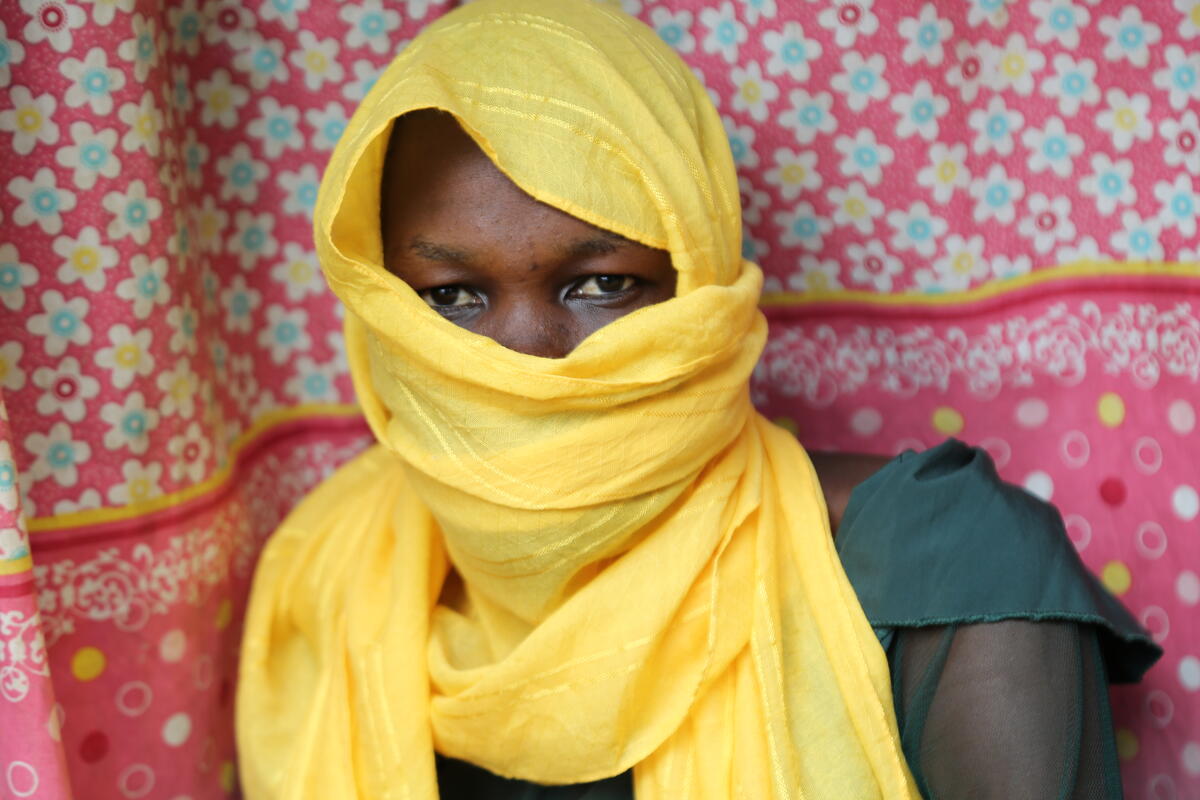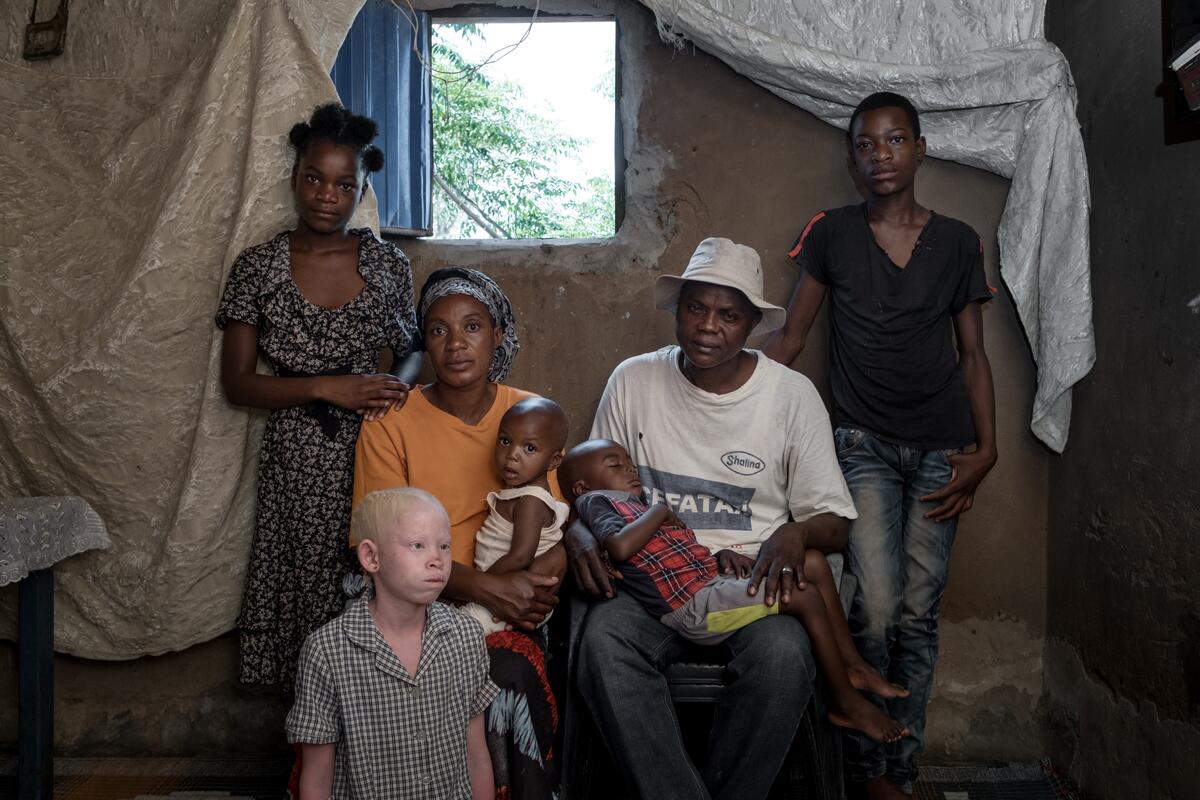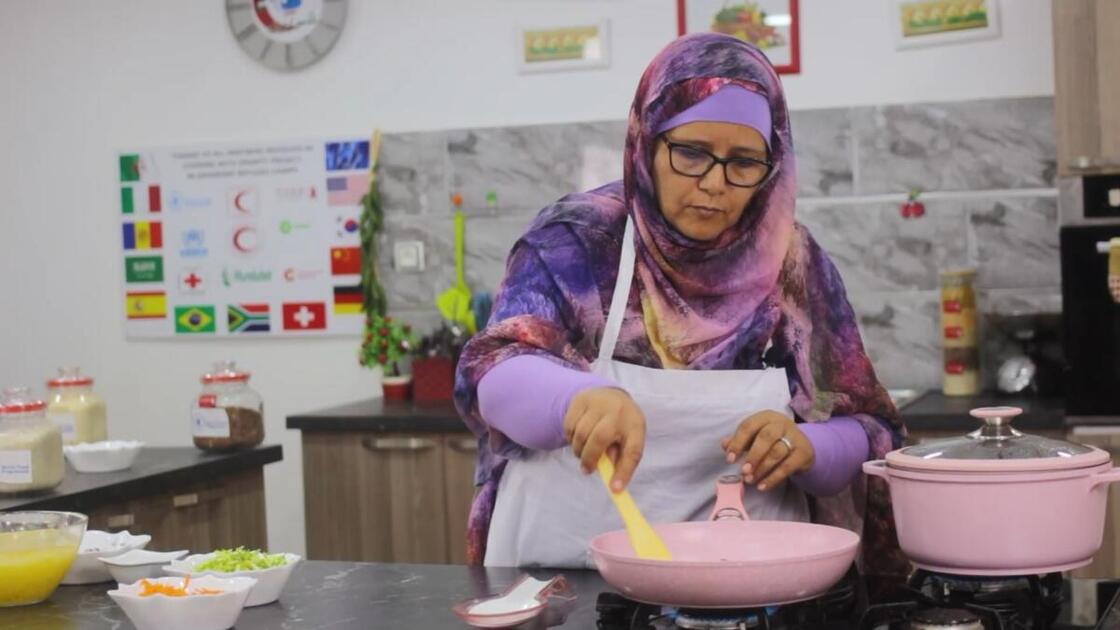Western Saharan refugees need food aid urgently, say UNHCR, WFP
Western Saharan refugees need food aid urgently, say UNHCR, WFP

GENEVA, Dec 19 (UNHCR) - Some 50,000 refugees in Algeria's desert camps are suffering from chronic malnutrition and in urgent need of food aid, warned the UN refugee agency and the UN World Food Programme (WFP) in an appeal to donors today.
On Friday, the two agencies made a joint appeal for urgent contributions of food aid for an estimated 165,000 West Saharan refugees in western Algeria's Tindouf area. Some of them have lived in the desert camps for up to 28 years, surviving on food aid that increasingly arrives late or in insufficient quantities to meet their nutritional needs.
"Urgent crises elsewhere in the world all too frequently overshadow their food aid needs, making this literally a hand-to-mouth operation," said UNHCR spokesman Peter Kessler at a news briefing in Geneva Friday.
More than 10 percent of this refugee group are acutely malnourished while over 30 percent are chronically malnourished, a condition typified by stunted growth. Anaemia is also a common problem among many refugee children and women of childbearing age.
Noting that the problem lies in a lack of food aid and delivery delays, Kessler appealed, "We urgently need donors to come forward with contributions and commitments for the speedy delivery of the regular food aid items as well as aid to combat micro-nutrient deficiencies among the refugees."
WFP spokeswoman Christiane Berthiaume thanked the Algerian government for contributing 10,000 tons of rice to the refugees, and noted that the European Commission Humanitarian Office (ECHO) had agreed in principle to fund three months of aid worth over 3 million euros through the WFP.
However, she noted, there will still be a time lag of at least three months before the ECHO-funded food aid actually arrives in the camps, and even then, the contribution will only offer partial relief for a limited period.
To drive home the message, UNHCR and the WFP are planning an assessment mission with donor countries to the Algerian camps in late January.
The Western Saharan refugees were nomads before they started fleeing their strife-torn homeland for Algeria in 1975. Today, they are confined to camps and dependent on humanitarian aid. Repatriation plans that date back more than a decade have been put on hold pending a political solution over Western Sahara.
To ease their plight, a high-level UN mission led by Special Representative of the Secretary-General Álvaro de Soto and including senior UN refugee agency staff is meeting Algerian and Moroccan officials in the region this week to discuss the establishment of direct telephone, mail and even travel links between the refugees and their relatives back in Western Sahara.









